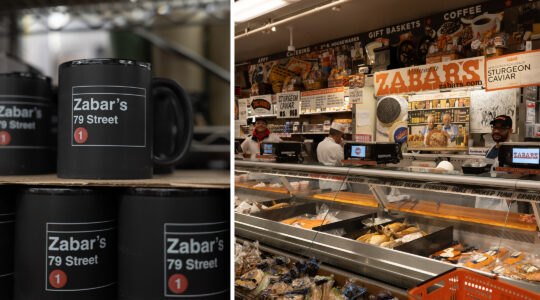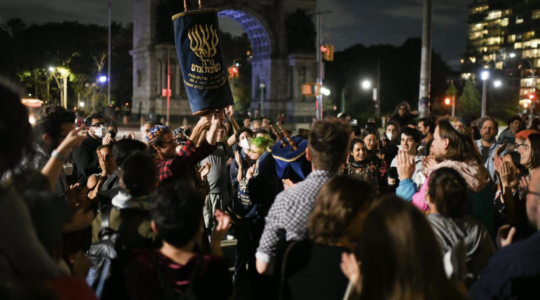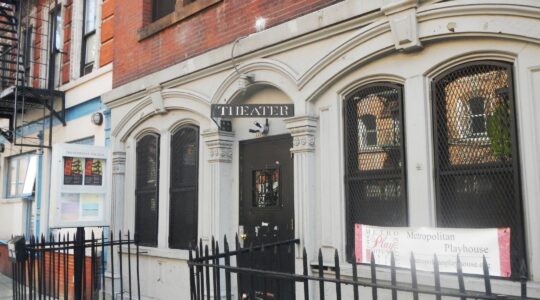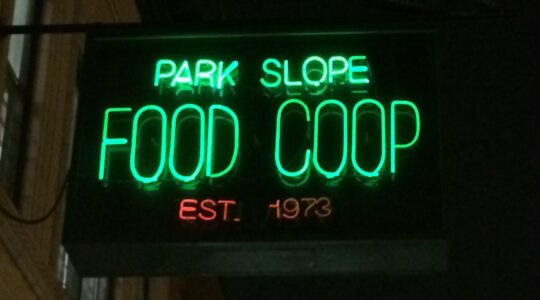1967
JUNE: Jerusalem is reunited following Israel’s stunning victory in the Six-Day War.
Yeshiva HaKotel, a prominent Zionist institution, is founded in the Old City.
1968
A terrorist bombing in the Mahane Yehuda open-air market kills 12
people and injures 52.
1969
Members of the Popular Front for the Liberation of Palestine terrorist organization bomb a Jerusalem supermarket; two Israelis are killed and 20 are injured.
The Al-Aqsa mosque on the Temple Mount is damaged by arson committed by a Protestant extremist from Australia.
1971
The Shalom Hartman Institute, a pluralistic research and education institute, is founded
1972
Canadian singer-composer Leonard Cohen, during a concert at the Yad Eliahu Sports Palace at the end of a world tour, has a meltdown on stage, walking off, then returning after a cigarette and quick shave.
1973
OCTOBER: Jerusalem is on high alert during the Yom Kippur War on the Syrian and Egyptian fronts.
The Jerusalem Cinematheque theater and film archive is founded.
1974
Archbishop Hilarion Capucci, head of the Greek Catholic Church in Jerusalem, is arrested and charged with using his Mercedes sedan to smuggle arms to Palestinian terrorists.
1975
A terrorist bomb in Zion Square kills 15 people.
Support the New York Jewish Week
Our nonprofit newsroom depends on readers like you. Make a donation now to support independent Jewish journalism in New York.
Jerusalem is struck for the first time by missiles, a pair of Czech-made Katyusha rockets fired by Arab terrorists, landing 500 yards from the Knesset.
1977
NOVEMBER: Egyptian President Anwar Sadat makes a historic visit to Israel, addressing the Knesset, where he calls for Israeli withdrawal from “occupied” Arab land and the establishment of a Palestinian state.
1979
The Hebrew University returns to its rebuilt pre-1948 campus on Mount Scopus.
The Eurovision Song Contest is held in Jerusalem. The Milk and Honey singing group wins with “Hallelujah.”
1980
The International Christian Embassy is founded by evangelical Christians to express their support for Israel and the Jewish people.
The Knesset passes the “Basic Law: Jerusalem, Capital of Israel,” which declares that the city will remain unified in the borders that the Israeli government determined following the Six-Day War.
1981
Some 6,000 people attend The World Gathering of Jewish Holocaust Survivors.
1982
An Israeli soldier with an automatic rifle shoots his way into the Dome of the Rock on the Temple Mount, spraying the inside of the mosque with gunfire, killing at least two Arabs and wounding nine.
1983
Bob (Zimmerman) Dylan visits the Western Wall on the day of his son’s bar mitzvah.
The Midrachov pedestrian mall is established downtown, at the corners of Jaffa Road, King George Street and Zion Square.
1984
A terrorist kills two students at the Cremisan Monastery in Jerusalem.
1985
The Jerusalem Botanical Gardens opens.
Support the New York Jewish Week
Our nonprofit newsroom depends on readers like you. Make a donation now to support independent Jewish journalism in New York.
1986
John Demjanjuk, an accused Nazi war criminal (aka Ivan the Terrible) living in Cleveland, is deported to Israel, going on trial at the Jerusalem District Court.
Refusenik Natan Sharansky, released after spending seven years in the Soviet Gulag system, arrives in Israel, receiving a hero’s welcome at the Western Wall.
1987
DECEMBER: The first Palestinian intifada uprising starts at the Jabalia refugee camp in Gaza and spreads to the West Bank and Jerusalem.
1988
The Women of the Wall hold their first prayer service — disrupted, as in later years, by charedi Jews — at the Western Wall.
The Brigham Young University Jerusalem Center for Near Eastern Studies (often referred to as the BYU Jerusalem Center) opens on the Mount of Olives.
John Demjanjuk is found “unhesitatingly and with utter conviction” guilty of all charges, and is sentenced to death.
Michel Sabbah is consecrated as Roman Catholic Bishop of Jerusalem, becoming the first Palestinian Arab to hold this position.
1990
Cable TV arrives in Israel.
The Temple Mount riots, Arabs protesting Jewish worship, result in the death of more than 20 Palestinians and the injury of 150.
1993
Teddy Kollek, Jerusalem’s mayor since 1965, loses a race for re-election.
A new City Hall, located in the Safra Square, opens.
The Malha Mall, the country’s biggest indoor shopping center, opens in the city’s southwestern corner.
The Tisch Family Zoological Gardens, better-known as the Jerusalem Biblical Zoo, opens in the Malha neighborhood.
Support the New York Jewish Week
Our nonprofit newsroom depends on readers like you. Make a donation now to support independent Jewish journalism in New York.
The Israeli Supreme Court overturns John Demjanjuk’s convictions.
1994
Palestinian terrorists armed with automatic rifles and grenades open fire in the Nahalat Shiva neighborhood, killing an Israeli soldier and an Israeli Arab and wounding at least 13 others.
1996
A Jerusalem 3000 celebration marks the “trimillennium” of the capital, centered in the City of David outside the Old City walls.
Palestinians throw stones and bottles at police to protest the opening of a controversial tunnel in the Old City that links the Western Wall and the Via Dolorosa.
1997
Hamas terrorists carry out two suicide bombings in the Mahane
Yehuda market. Sixteen people are killed and 178 injured.
1999
The Eurovision Song Contest is held in Jerusalem.
The Kraft Family Stadium opens in the center of Jerusalem as a venue for immigrants to play their U.S.-brand of football.
Teddy Stadium, named for Teddy Kollek, opens in south Jerusalem as a site for soccer games and concerts.
2000
SEPTEMBER: Likud Party leader Ariel Sharon makes a highly visible visit to the Temple Mount, to demonstrate Jewish sovereignty. The PLO uses it as a pretense to start the second intifada uprising.
Pope John Paul II visits Jerusalem, praying at the Western Wall.
The Belz Great Synagogue, the largest Jewish house of worship in the country, opens in the Kiryat Belz neighborhood.
2001
The Versailles wedding hall collapse kills 23 and injures 200, Israel’s worst-ever civil disaster.
Support the New York Jewish Week
Our nonprofit newsroom depends on readers like you. Make a donation now to support independent Jewish journalism in New York.
The Sbarro restaurant suicide bombing in downtown Jerusalem kills 15 people and injures 130.
2002
Jerusalem’s first gay pride parade takes place.
Israel begins building its security fence.
Highway 50, officially called Begin Boulevard, opens, linking the city’s northern and southern areas.
IDT Global Israel, which provides “business process outsourcing solutions,” opens in Jerusalem.
2003
Uri Lupolianski is elected Jerusalem’s first charedi mayor.
2005
Dr. Robert Aumann, emeritus professor at Hebrew University, wins the Nobel Prize in economics.
The Jerusalem Malha terminus
of Israel Railways opens.
2006
Dr. Roger Kornberg, visiting professor at Hebrew University, wins the Nobel Prize in Chemistry.
2007
Teddy Kollek dies at 95.
2008
An Arab resident of east Jerusalem carries out a bulldozer attack on Jaffa Road, killing three people and wounding at least 30.
At Mahane Yehuda, a Guinness record in hummus consumption is set, from a plate with a 3.8-yards diameter.
Support the New York Jewish Week
Our nonprofit newsroom depends on readers like you. Make a donation now to support independent Jewish journalism in New York.
2009
Pope Benedict XVI visits Israel.
UNESCO and the Arab League sponsor an Al-Quds Arab Capital of Culture program to promote Arab culture and encourage cooperation in the Arab world.
2011
The first Jerusalem Marathon takes place.
Videos of an alleged UFO in the skies above Jerusalem take the Internet by storm. The hoax purportedly depicts a glowing, unidentified object that slowly descends from the sky and hovers directly above the Dome of the Rock.
2013
The site of Jerusalem’s former railroad station reopens as HaTakhana HaRishona (“The First Station”), a culture and entertainment venue.
2014
Pope Francis visits Israel.
Two Palestinian terrorists enter Kehilat Bnei Torah synagogue in the Har Nof neighborhood, attacking congregants with axes, knives and a gun. They kill four dual-nationality worshippers, and critically wound a responding Druze Israeli police officer, who later dies of his wounds.
2015
Part of an ancient aqueduct built more than 2,000 years ago to transport water into the city of Jerusalem is uncovered during a construction project.
Six people are stabbed at the Jerusalem gay pride parade.
Hapoel Jerusalem for the first time wins the Israel State Championship in basketball.
2016
Shimon Peres, former president and prime minister, dies.
Donald Trump, Republican candidate for president, pledges that, if elected, he will move the U.S. embassy in Israel from Tel Aviv to Jerusalem.
Support the New York Jewish Week
Our nonprofit newsroom depends on readers like you. Make a donation now to support independent Jewish journalism in New York.
Amar’e Stoudemire, former All-Star NBA player, signs with Hapoel Jerusalem.
Archaeologists uncover the remnants of an impressive fort built more than 2,000 years ago by Greeks in the center of old Jerusalem. The ruins are the first solid evidence of an era in which Hellenistic culture held sway here.
2017
Elected president, Donald Trump appears to backtrack — or delay — the moving of the U.S. embassy to Jerusalem. Trump’s envoy to the Middle East, Jason Greenblatt, begins shuttle diplomacy to Israel, trying to jumpstart the stalled Israeli-Palestinian peace process.
An Israeli Arab drives a truck into a group of soldiers in the East Talpiot neighborhood, killing four and injuring 15.




